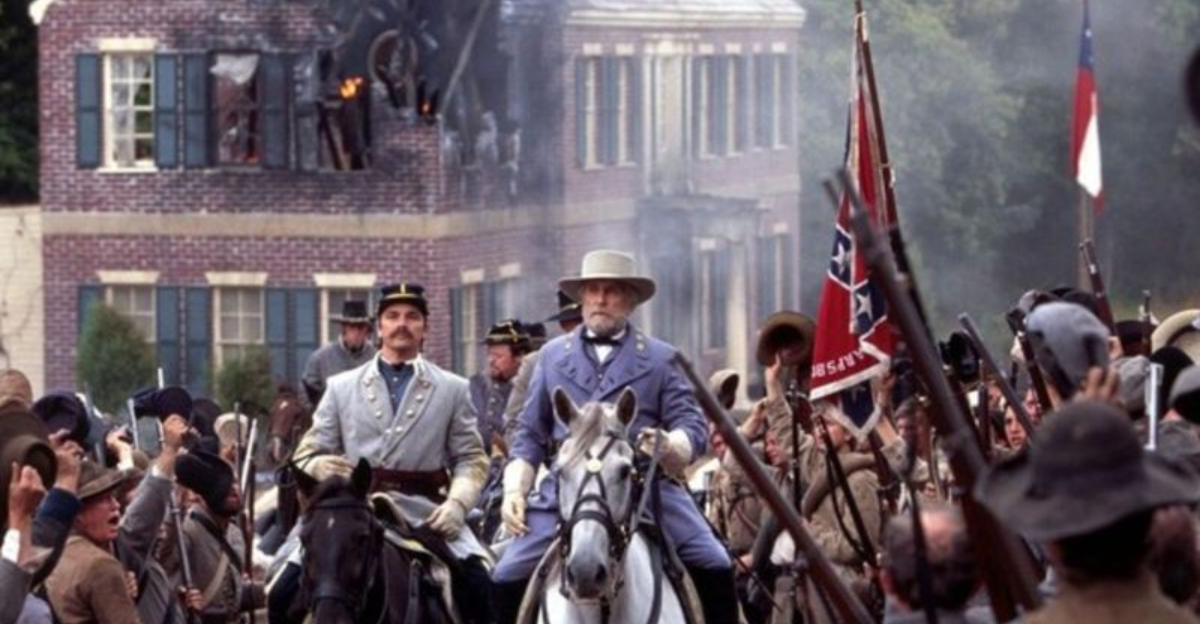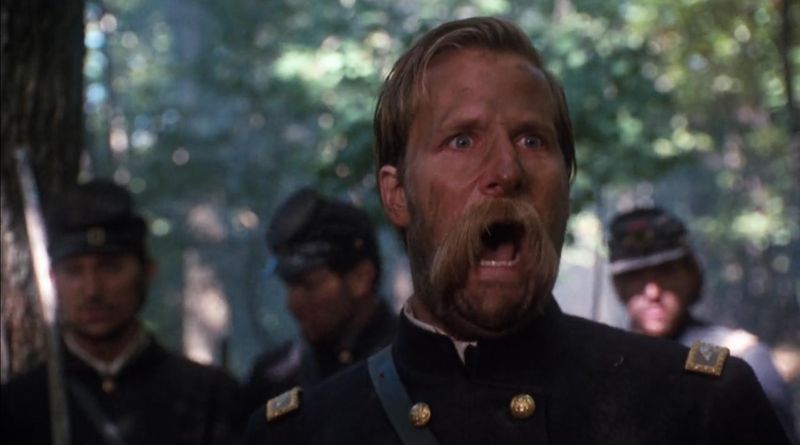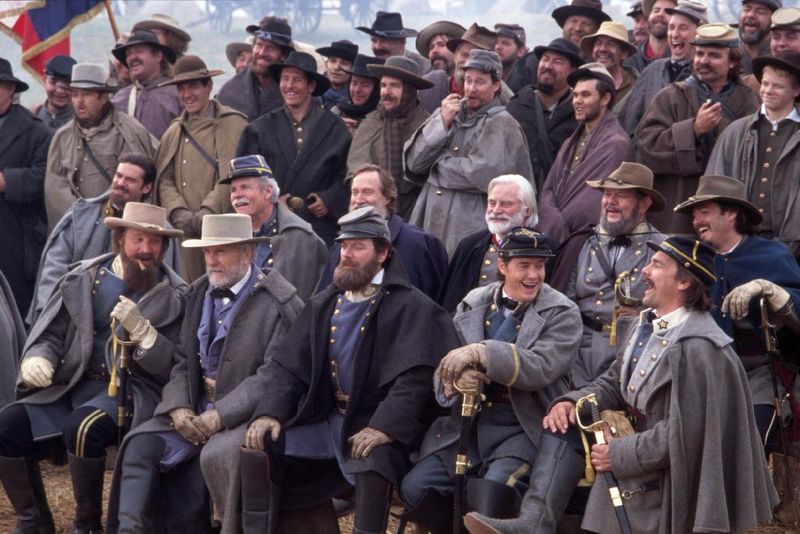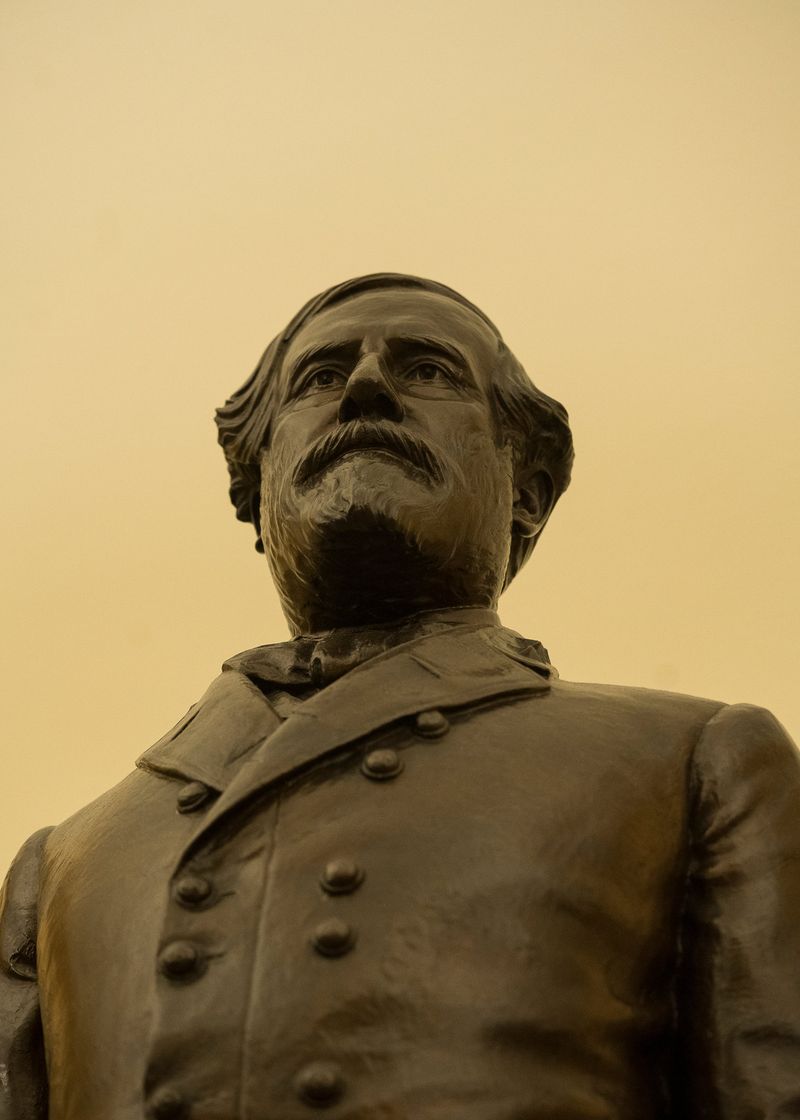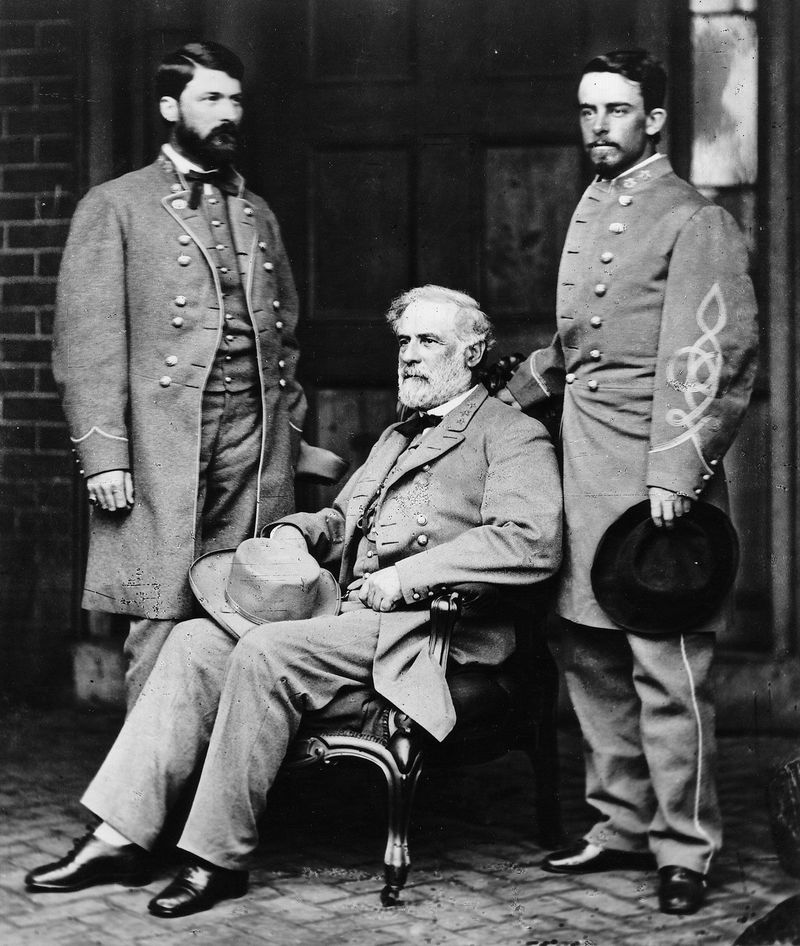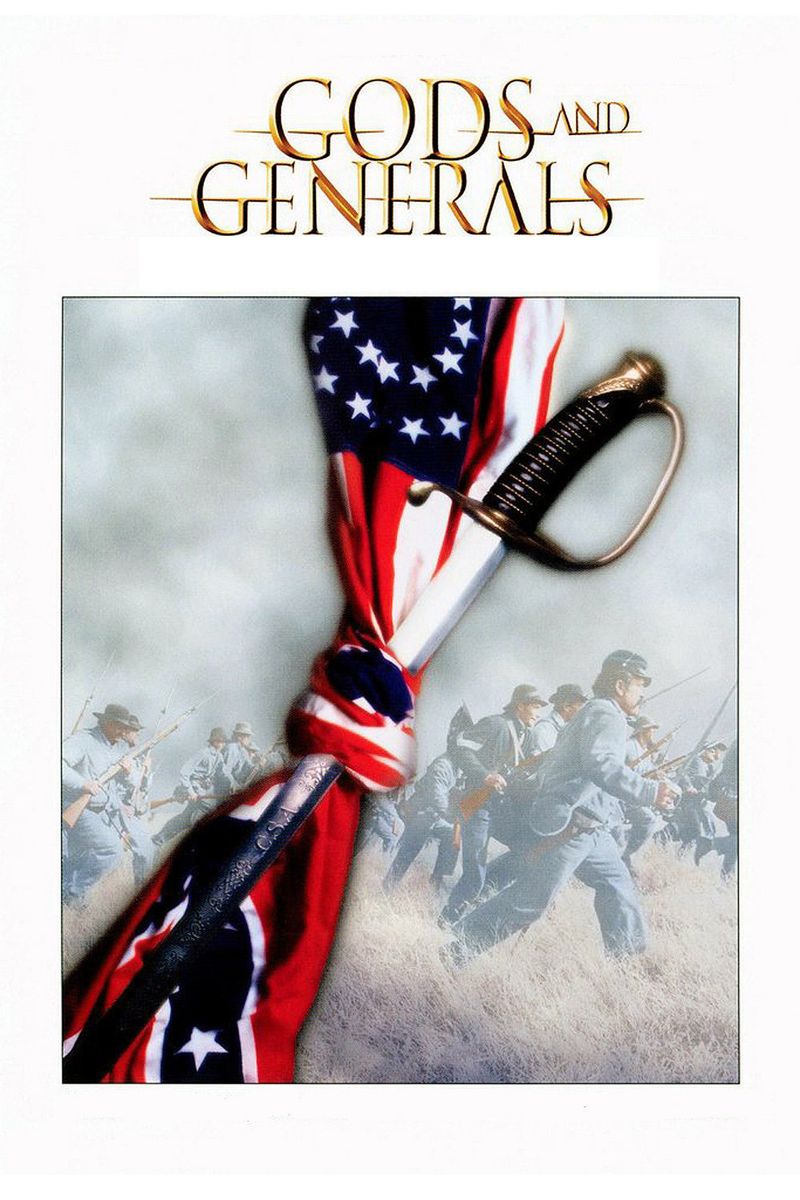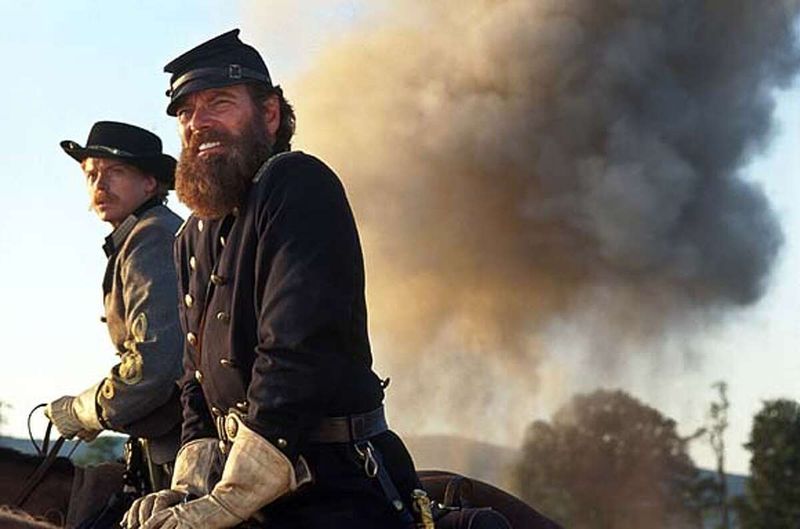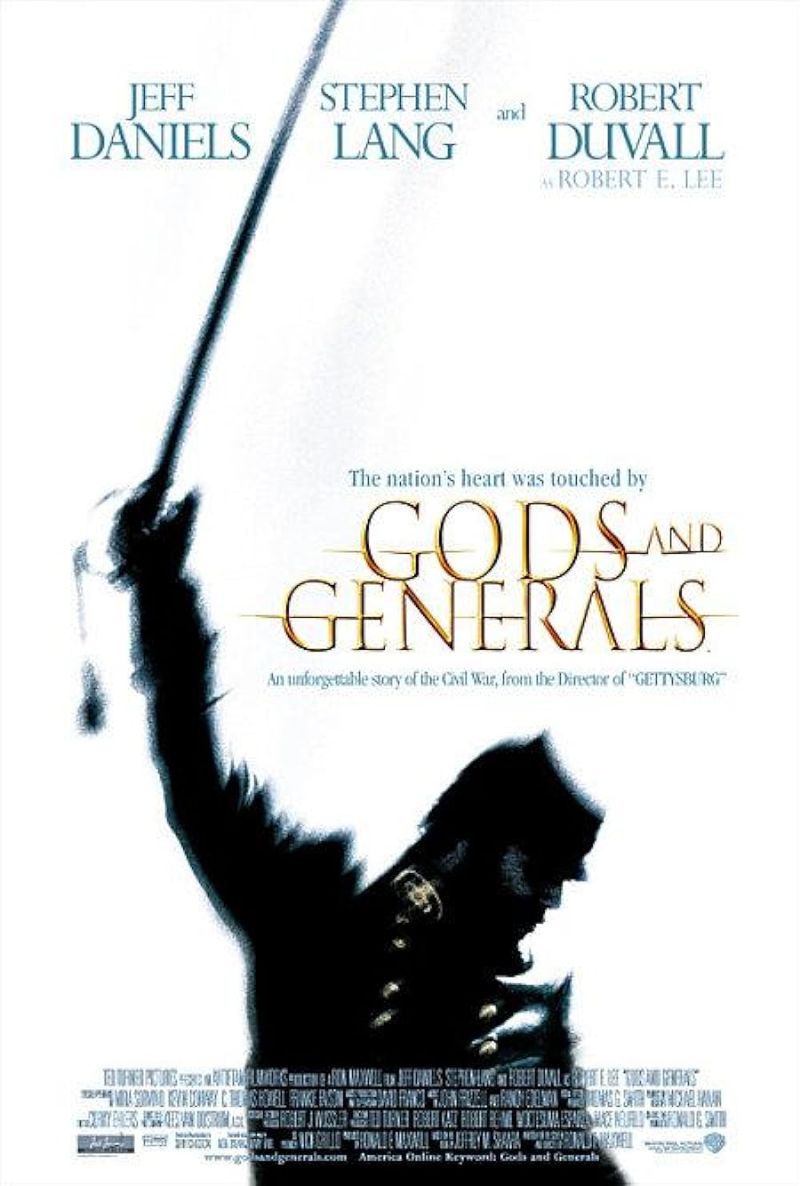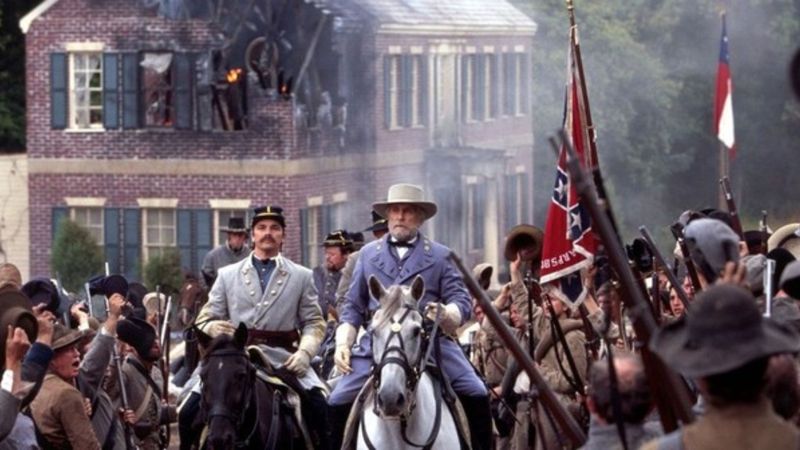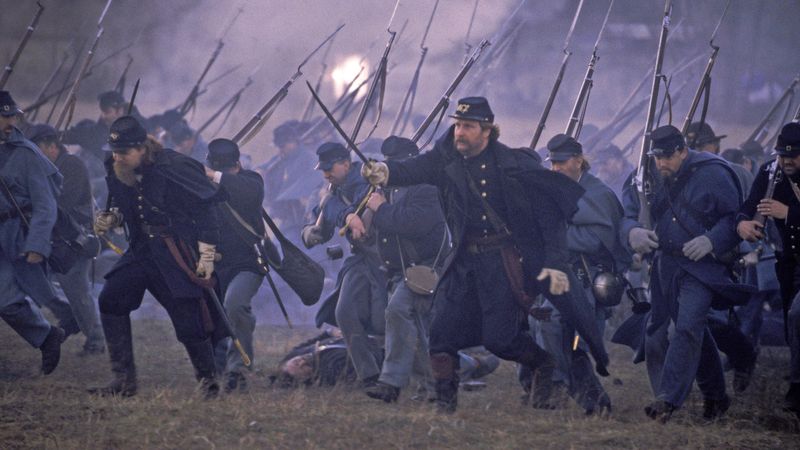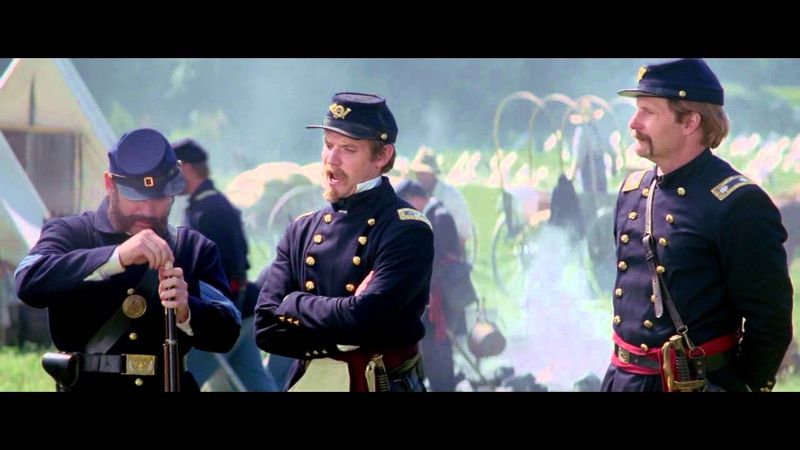“Gods and Generals” (2003) is a war film featuring Jeff Daniels as Colonel Joshua Lawrence Chamberlain. It was intended as a prequel to the 1993 film “Gettysburg” but faced criticism for its glorification of Confederate figures and historical inaccuracies.
The film was criticized for its portrayal of Confederate leaders as heroic figures while downplaying the role of slavery in the Civil War. Despite its $56 million budget, it earned only $12.8 million.
1. Jeff Daniels’ Role
Jeff Daniels played Colonel Joshua Lawrence Chamberlain, a Union officer known for his strategic acumen. His character was portrayed as a thoughtful leader, grappling with the moral complexities of war. Chamberlain’s scenes offered a window into the Union perspective, often highlighting his internal struggles and leadership qualities. Daniels’ performance was praised for its depth, capturing the essence of a historical figure torn between duty and empathy. His portrayal remains a significant part of the movie.
2. Prequel to Gettysburg
“Gods and Generals” was designed as a prequel to the well-received 1993 film “Gettysburg.” This connection aimed to draw audiences interested in Civil War narratives. However, unlike its predecessor, the film struggled to capture the same critical acclaim. While “Gettysburg” was celebrated for its historical detail and balanced storytelling, “Gods and Generals” was critiqued for its lengthy exposition and lack of narrative engagement. It ultimately failed to resonate with audiences as intended.
3. Main Criticism
The main criticism of “Gods and Generals” centered on its heavy glorification of Confederate figures, notably Robert E. Lee and Stonewall Jackson. Critics argued that the film presented these leaders in an overly heroic light, overshadowing the complex realities of their actions. This romanticized portrayal was seen as a significant flaw, detracting from the film’s historical authenticity. It sparked debates about the narrative’s alignment with the “Lost Cause” mythology, which sought to reinterpret Civil War history.
4. Accusations of Racism
Critics accused “Gods and Generals” of promoting “Lost Cause” mythology, which downplays slavery’s role in the Civil War. The film was seen as perpetuating a narrative that ignored the brutal realities faced by enslaved individuals. By focusing on Confederate leaders’ supposed nobility, it was perceived as softening the harsh truths of history. This aspect of the film drew significant backlash from historians and audiences alike, fueling ongoing discussions about representation in historical cinema.
5. Historical Inaccuracies
“Gods and Generals” faced criticism for its historical inaccuracies, particularly in its portrayal of Confederate leaders as noble and heroic figures. The film largely ignored the horrors of slavery, which was central to the Civil War. By choosing to focus on the honor of Confederate leaders, it missed the opportunity to present a balanced view of history. This selective storytelling was seen as a major shortcoming, contributing to its negative reception among historians.
6. Pacing and Tone Issues
The film’s pacing and tone were major issues, contributing to its overall reception. At nearly four hours long, it was criticized for being too slow and preachy. Its attempt to provide a detailed look at Civil War events often resulted in lengthy expositions that failed to engage viewers. The tone was described as overly solemn, lacking the dynamic storytelling needed to keep audiences invested. These factors made it a challenging watch for many.
7. Critical Reception
Upon release, “Gods and Generals” was widely panned by critics, earning a dismal 8% score on Rotten Tomatoes. This reflected its failure to meet expectations set by both audiences and critics. The reviews highlighted issues such as the film’s length, historical inaccuracies, and lack of compelling narrative. Despite its ambitious scope and notable cast, it struggled to find favor. Its critical reception continues to overshadow any positive aspects it might have had.
8. Box Office Flop
“Gods and Generals” was a box office flop, earning just $12.8 million against a budget of $56 million. This financial failure highlighted the film’s inability to attract and retain audiences. Several factors contributed to its poor performance, including its lengthy runtime and controversial portrayal of historical events. Despite the involvement of renowned actors and a sizeable production budget, it failed to resonate with cinema-goers, resulting in significant financial losses for the studio.
9. Lasting Impact
The lasting impact of “Gods and Generals” is more associated with controversy and historical whitewashing than artistic merit. Despite its ambitions, it is remembered for the debates it spurred over historical portrayal and narrative bias. While some praised its production values, the film’s handling of sensitive topics overshadowed these aspects. It serves as a case study in how historical films can influence public discourse, both positively and negatively. Its legacy remains a topic of discussion.
10. Intended Audience
“Gods and Generals” was intended for an audience eager for Civil War history, but it failed to connect. The film’s extensive runtime and controversial perspectives alienated many viewers. History enthusiasts expected a balanced narrative, but were met with a glorified account that ignored key aspects. This mismatch between expectation and delivery led to its poor reception. The film’s attempt to cater to history buffs ultimately missed the mark, limiting its appeal and reach.
